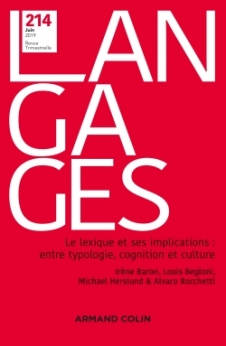
Langages nº 214 (2/2019)
Pour acheter ce numéro, contactez-nous
Recevez les numéros de l'année en cours et accédez à l'intégralité des articles en ligne.
L’article étudie le rôle méconnu du lexique dans la construction de l’identité nationale. Cette dernière tire, en effet, son origine de récits puisés dans l’histoire du pays. Or, de tels récits présupposent le langage pour leur élaboration et leur diffusion. C’est donc la langue commune (nationale) qui va leur fournir les concepts-clés et leur conférer leur spécificité. Le rôle déterminant du lexique comme système de conceptualisation se retrouve dans la présentation de la nation à l’étranger (le nation branding ou « marque pays »), qui n’est autre que la mise en scène de l’identité nationale articulée à partir des mots de la langue. L’analyse est illustrée par une approche comparative franco-danoise.
The article studies the underestimated role of the lexicon in the construction of national identity. This identity is, in fact, a product of narratives from the nation’s history. Since such narratives presuppose language in order to be elaborated and diffused, it is the common (national) language that provides their key concepts and gives them their specificity. The determining role of the lexicon as a system of conceptualisation is also seen in the presentation of the nation to foreigners (nation branding), which is nothing but the staging of the national identity through the words provided by the language. The analysis is illustrated by a comparative approach to French and Danish.